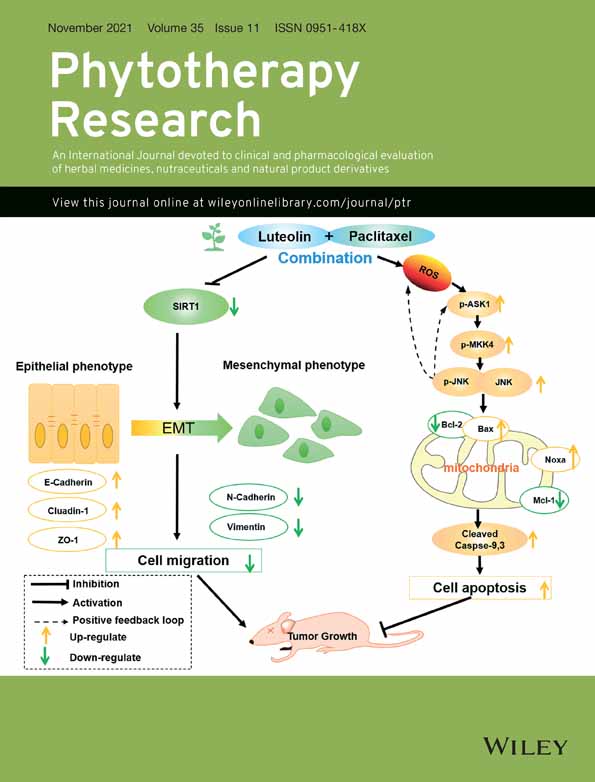Rutaecarpine alleviates acute pancreatitis in mice and AR42J cells by suppressing the MAPK and NF-κB signaling pathways via calcitonin gene-related peptide
Funding information: National Natural Science Foundation of China, Grant/Award Number: 81670589
Abstract
Acute pancreatitis (AP) is an acute inflammatory condition of the pancreas. Previous studies have shown that rutaecarpine (RUT), an important alkaloid component of Evodia rutaecarpa, exhibits certain protective effects against AP in rats by upregulating calcitonin gene-related peptide (CGRP). However, the molecular mechanism of RUT in AP remains unknown. This study aimed to investigate the effects of RUT on cerulein-induced AP in vivo and in vitro, and to explore the underlying molecular mechanisms. In cerulein/LPS-treated wild-type mice, but not CGRP gene knock-out mice, RUT significantly ameliorated pancreatic inflammation by alleviating histopathological changes, reducing IL-6 and TNF-α levels, and increasing in IL-10 levels. Moreover, RUT improved AP by suppressing the MAPK and NF-κB signaling pathways. These effects were mostly mediated through CGRP. Cell-based studies revealed that RUT significantly improved cell viability while suppressing the apoptosis of AR42J cells with cerulein-induced AP, downregulating IL-6 and TNF-α, stimulating IL-10 release, and inhibiting MAPK, NF-κB, and STAT3 signaling activation, all in a CGRP-dependent manner. RUT ameliorated cerulein/LPS-induced AP inflammatory responses in mice and AR42J cells in a CGRP-dependent manner and thus may represent a potential therapeutic option for AP patients. Our study provides valuable insights for AP drug development.
CONFLICT OF INTEREST
The authors declare that they have no competing interests.
Open Research
DATA AVAILABILITY STATEMENT
The data that support the findings of this study are available from the corresponding author upon reasonable request.




